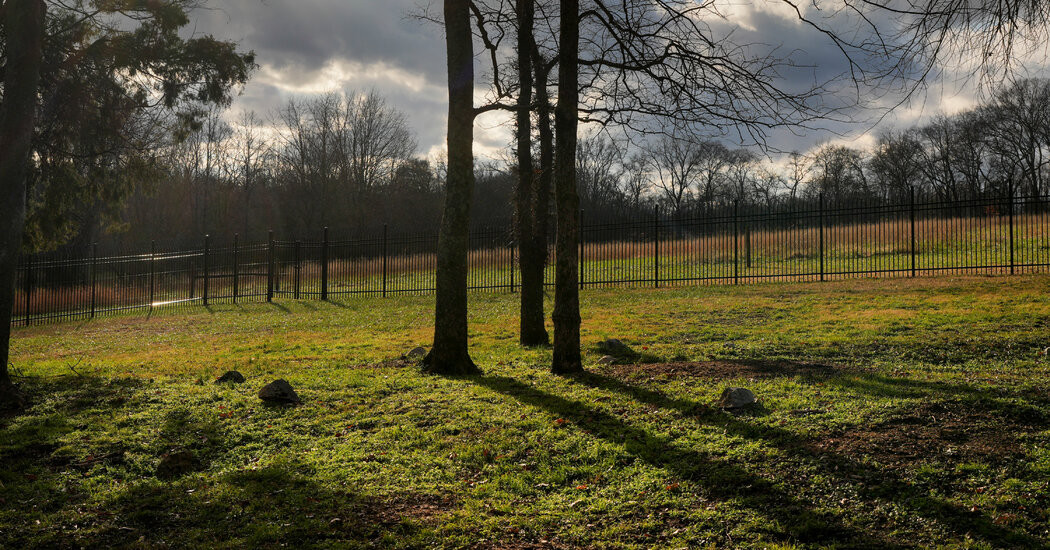

The burial ground at the former American president’s home in Nashville is the latest to be discovered at a presidential site.
The South is a land of lost graves.
The burial grounds of enslaved farm workers dot the banks of the Mississippi, where sprawling plantations once were. They also lay hidden for centuries on the grounds of America’s presidential homes, including Thomas Jefferson’s Monticello.
Now, a burial ground for enslaved people has been discovered at Andrew Jackson’s home in Nashville, known as the Hermitage, the Andrew Jackson Foundation announced this week. The brash and divisive seventh U.S. president, whose portrait hung in the Oval Office during President-elect Donald J. Trump’s first term, was known to have owned, along with his son, more than 300 enslaved people before the Civil War.
Historians at the foundation established that at least two dozen of those people had died at the 1,120-acre Hermitage in Nashville, but finding their graves, despite many attempts, proved elusive. Even as the foundation began to focus on the role of enslaved people at the plantation, and a clearer picture emerged of their lives, the graves themselves could not be found.
“This was really the one glaring missing thing,” said Tony Guzzi, the chief of preservation for the foundation.
That changed in January, when archaeologists found 28 graves — roughly the same number as that of enslaved people known by the foundation to have died at the Hermitage, Mr. Guzzi said. There may be more such graves in that same area, or elsewhere, that are yet to be located, he added.
“Any time you have this large of a population of enslaved people at the site, there has to be a cemetery somewhere,” Mr. Guzzi said. “And we have found that piece of the history that was missing.”